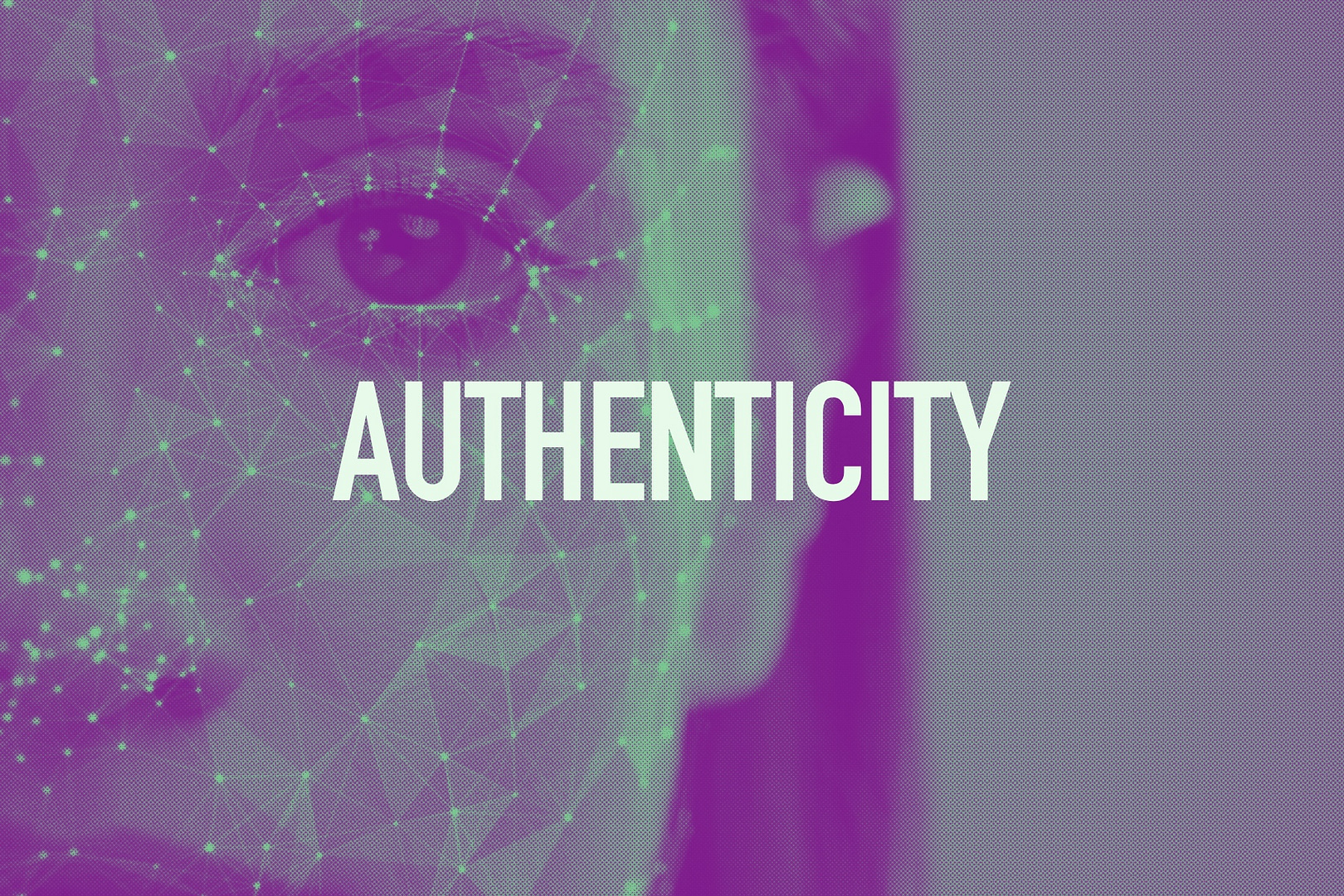Table of Contents
Definition and Importance in the Digital Age
Online authenticity refers to the genuine and sincere representation of oneself or a brand in the digital space. In today’s digital landscape, where virtual interactions are as significant as physical ones, the authenticity of an online presence is a key differentiator. It encompasses being true to one’s values, story, and audience, fostering trust and loyalty. According to a report by Stackla in 2020, 90% of consumers say authenticity is important when deciding which brands they like and support.
The Psychological Impact of Authenticity on Audiences
Psychologically, online authenticity meets a fundamental human need for trust and connection. Research in web psychology indicates that when brands or individuals are perceived as authentic, they form deeper emotional bonds with their audience. Morrison and Crane (2007), in their study on consumer perceptions, found that authenticity significantly influences customer loyalty and engagement.
Historical Evolution of Online Authenticity
From early internet anonymity to personal branding
The internet’s infancy was marked by anonymity, with little emphasis on authenticity. However, as digital platforms evolved, so did the emphasis on personal branding and authenticity. LinkedIn, initially a professional networking site, has transformed into a platform for personal brand development, reflecting this shift.
Case Studies: Success stories of authentic brands
Brands like Patagonia and Dove have successfully leveraged authenticity. Patagonia’s commitment to environmental causes and Dove’s “Real Beauty” campaign are genuine reflections of their brand values, translating into customer loyalty and a larger customer base. A study by Cohn & Wolfe in 2017 showed that 91% of consumers globally would reward a brand for its authenticity by purchasing or endorsing the brand.
Neuromarketing Insights: Understanding Audience Perception
The neuroscience behind trust and authenticity
Neuromarketing provides insight into how consumers perceive authenticity. Brain imaging studies reveal that authentic messages activate areas associated with trust and emotional engagement, like the ventromedial prefrontal cortex. This biological response underscores the importance of authenticity in marketing. An example is a study by Plassmann et al. (2007), which demonstrated how brand perception influences the brain’s response to marketing.
Strategies for Crafting Authentic Online Narratives
Balancing professionalism with personal touch
An authentic online narrative is a blend of professionalism and personal touch. It’s about communicating your brand’s values and expertise while showcasing its human side. Storytelling is key here. For example, Airbnb’s “Belong Anywhere” campaign combines professional service offerings with personal stories, effectively enhancing the brand’s authenticity.
Storytelling techniques for genuine engagement
Effective storytelling in branding can significantly impact audience engagement. Techniques like incorporating real customer testimonials, behind-the-scenes content, and employee stories can make a brand’s online presence more relatable and genuine. A report by Forrester in 2020 highlights the effectiveness of storytelling in engaging customers and building brand authenticity.
Content Creation with Authenticity
Identifying and communicating your unique value proposition
The cornerstone of authentic content creation is a clear and compelling unique value proposition (UVP). This involves understanding and communicating what sets your brand apart. Whether it’s unparalleled customer service, innovative products, or a commitment to sustainability, your UVP should be evident in every piece of content.
Consistency vs. adaptability in content strategy
Maintaining a consistent tone and messaging is crucial for brand recognition. However, adaptability in responding to current events and market trends is also essential. A balance between consistency and adaptability helps a brand stay relevant while maintaining its core identity. Research published in the Journal of Consumer Research emphasises the importance of this balance for perceived authenticity.
Authenticity in Social Media Interaction
Building trust through transparency and engagement
Transparency and engagement on social media are vital for building trust. This involves openly addressing customer concerns and sharing company updates. Engagement, such as responding to comments and participating in relevant conversations, solidifies this trust.
Case Studies: Authenticity wins on various platforms
Lush Cosmetics is an example of a brand with a transparent and engaging social media presence. Their open discussion of product ingredients and ethical sourcing resonates with their audience, fostering a loyal community. This approach aligns with findings from Nielsen’s Global Trust in Advertising Report, which shows that transparency significantly enhances consumer trust.
Challenges and Pitfalls in Maintaining Online Authenticity
Navigating misinformation and authenticity crises
The digital age, while offering vast opportunities for authenticity, also presents challenges like misinformation. Brands must navigate these challenges with care, ensuring the accuracy of their content and swiftly correcting any missteps. The Edelman Trust Barometer emphasises the detrimental effect of misinformation on brand trust, highlighting the importance of transparency and fact-checking.
Ethical considerations and authenticity
Ethical behaviour online is a critical component of authenticity. This involves not only truthful representation but also ethical decision-making in data privacy, advertising, and consumer interactions. The Journal of Business Ethics discusses principles that guide ethical behaviour online, underlining their importance in authenticity.
Measuring the Impact of Authenticity
Metrics and KPIs for authentic engagement
Key performance indicators (KPIs) such as engagement rates, audience growth, and brand sentiment are essential in measuring the impact of authenticity. These metrics provide insights into how authentically a brand is perceived and the effectiveness of its authenticity strategies.
Tools and techniques for monitoring authenticity
To monitor authenticity, brands can utilize tools like social listening platforms, which provide valuable feedback on public sentiment and track conversations around a brand. These insights are crucial for understanding and enhancing a brand’s authentic online presence.
Future Trends in Online Authenticity
Predictions for the evolution of authenticity in digital spaces
The importance of authenticity in digital spaces is expected to grow. Emerging technologies like AI and machine learning offer new avenues for personalization and interaction, potentially enhancing authenticity. The Harvard Business Review discusses these technologies’ potential in shaping future marketing strategies.
Embracing emerging technologies for enhanced authenticity
Adopting emerging technologies responsibly is key to enhancing online authenticity. This means using technology to augment human interaction and ensuring AI-driven communications align with a brand’s authentic voice.
Integrating Authenticity into Your Overall Digital Strategy
In conclusion, integrating authenticity into your digital strategy is about embodying a mindset that values genuine connections and transparent communication. It involves reflecting your brand’s core values in every aspect of your online presence and engaging genuinely with your audience. Regularly assessing your strategy and utilizing technology wisely are also crucial steps in this process.
FAQs
How can a brand recover from an authenticity crisis?
Address the issue transparently, take responsibility, and communicate the steps taken to rectify the situation. Consistency in response and actions is crucial for rebuilding trust.
Can a small business compete with larger brands in terms of online authenticity?
Yes. Small businesses often have the advantage of a more personal touch and can build strong, authentic connections with their audience.
How often should we reassess our authenticity strategy?
Regular assessment, ideally quarterly or bi-annually, helps ensure your strategy remains aligned with your brand values and audience expectations.
Is there a risk of over-sharing in the pursuit of authenticity?
Authenticity should not compromise professionalism. Balance transparency with maintaining a professional brand image.
Can we measure the ROI of authenticity?
While it’s difficult to quantify directly, engagement rates, customer loyalty, and brand sentiment are indicators of the ROI of authenticity.







